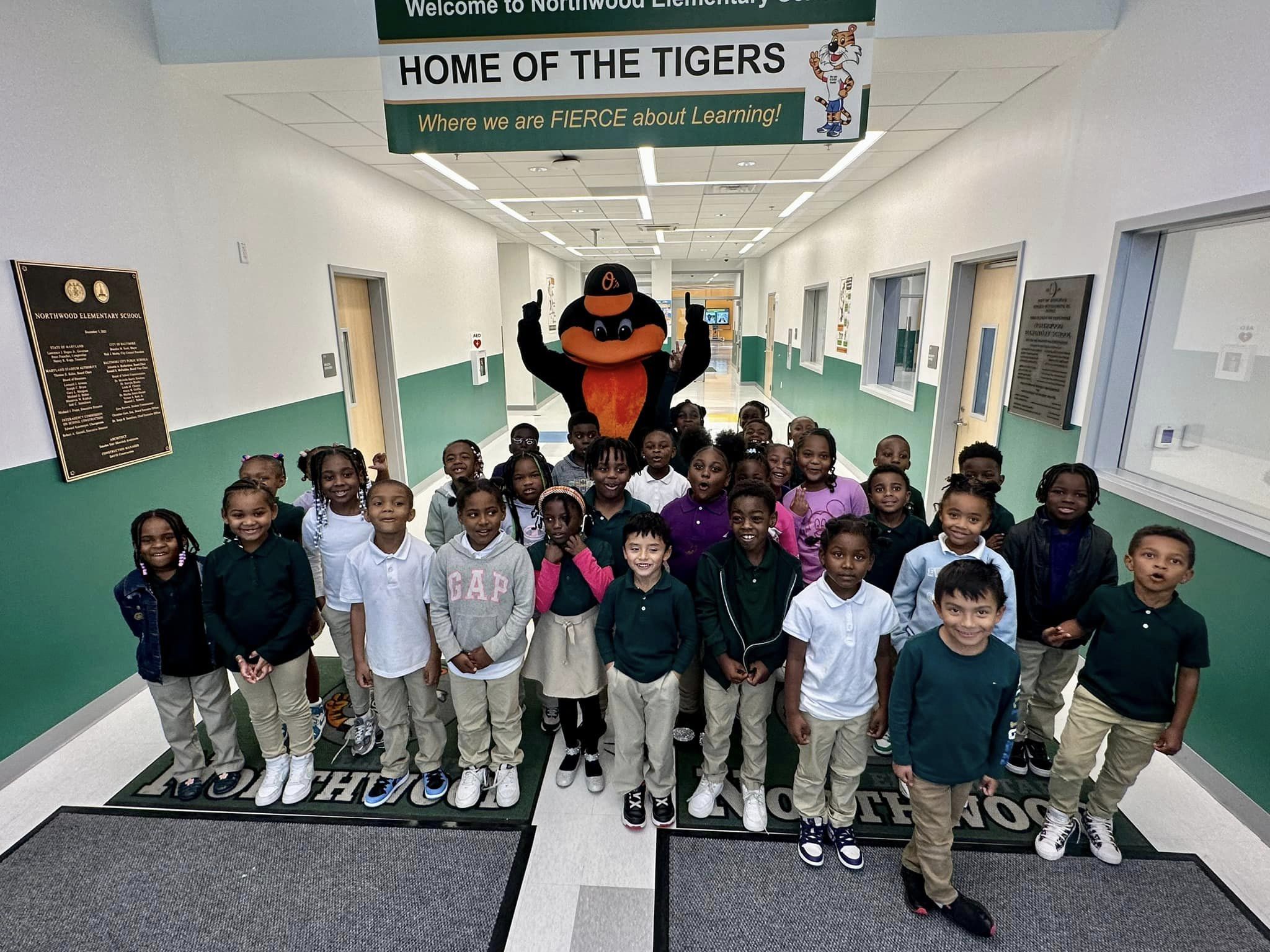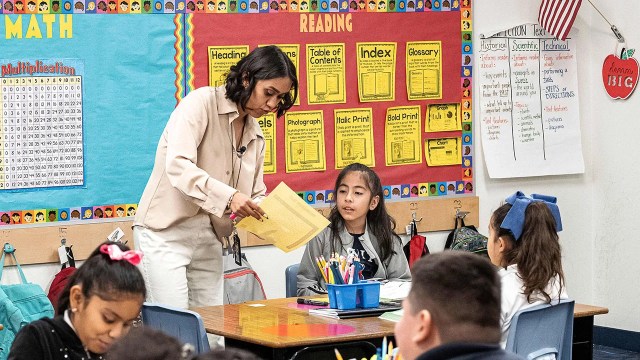Why a Grade School equips students for future success
Wiki Article
Discovering the Conveniences of Kindergarten Programs: A Comprehensive Overview to Early Education
Kindergarten programs play a pivotal function in shaping a kid's very early educational experience. They provide an organized atmosphere where young students can develop vital social abilities, emotional durability, and cognitive abilities. These foundational skills are vital as children move into more formal education. Understanding how these programs add to a child's growth exposes much concerning their long-term academic trajectory. What particular advantages do these very early experiences use, and exactly how do they influence a kid's future?The Significance of Social Abilities Advancement
While many aspects of early education and learning concentrate on academic skills, the growth of social skills in kindergarten programs is equally crucial. Social skills incorporate the capacity to connect efficiently, work together with peers, and navigate social circumstances, every one of which are necessary for a youngster's overall growth. In kindergarten, kids find out to share, take turns, and settle problems, cultivating a feeling of area and belonging. These experiences make it possible for young learners to develop and develop relationships empathy, preparing for favorable connections in the future.Teachers play a pivotal duty in promoting social ability growth with structured tasks and led communications. Via group projects and play, children practice necessary skills such as paying attention, bargaining, and understanding varied point of views. These interactions aid kids construct confidence and self-worth, important components for their scholastic and individual trips. Generally, nurturing social abilities in preschool enriches youngsters's experiences and prepares them for the intricacies of social life beyond institution.

Structure Psychological Strength in Youthful Learners
Building emotional strength in young students is fundamental to their total well-being and success in numerous elements of life. Kindergarten programs provide a structured setting where children can find out to navigate their emotions successfully. Via led activities and interactions, educators help kids determine and reveal their feelings, cultivating a feeling of self-awareness.Moreover, these programs frequently include approaches for handling challenges, such as analytical activities and role-playing scenarios that prepare children for real-life circumstances. By motivating participation and compassion, young students create strong social connections, which are essential for emotional assistance.
Educators play a crucial duty in modeling strength by demonstrating just how to take care of stress and adversity. As children observe these behaviors, they internalize useful coping systems, equipping them to manage future emotional problems with greater simplicity. Overall, supporting emotional strength in very early education lays a solid structure for lifelong mental health and wellness and adaptability.
Enhancing Cognitive Capacities With Structured Knowing
As kids participate in organized understanding experiences within kindergarten programs, their cognitive capabilities are considerably enhanced. These programs introduce age-appropriate tasks that promote crucial reasoning and problem-solving abilities. Hands-on tasks such as challenges and structure blocks promote spatial recognition and rational thinking.In addition, interactive narration and team conversations foster language advancement, broadening vocabulary and understanding. With structured regimens, youngsters discover to adhere visit our website to directions, boosting their exec operating abilities, which are necessary for future academic success.
Social interactions within these programs additionally play a significant function, as kids discover to team up and connect properly, more boosting cognitive development.
In addition, integrating play-based discovering allows youngsters to discover ideas in a fun and interesting means, strengthening their understanding and retention of knowledge. In general, organized learning in preschool lays a solid structure for cognitive growth, preparing youngsters for the challenges of college.
Promoting a Love for Lifelong Discovering

Additionally, favorable communications with peers and teachers contribute to an atmosphere where understanding is deemed fulfilling and delightful. This supportive environment assists infuse innate inspiration and strengthens the concept that education is a continual journey rather than a location.
As youngsters find their toughness and interests, they are more most likely to seek understanding beyond the class, laying the structure for a long-lasting commitment to knowing. Inevitably, kindergarten programs play a necessary duty in forming passionate students who welcome academic opportunities throughout their lives.
Getting Ready For Future Academic Success
While foundational skills are crucial for very early students, preschool programs also play an essential role in preparing youngsters for future academic success. These programs introduce essential concepts such as literacy and numeracy, ensuring that children create the cognitive capacities needed for advanced discovering. By taking part in structured activities, trainees enhance vital reasoning and problem-solving abilities, laying a solid foundation for their academic journey.Kindergarten promotes social-emotional advancement, enabling youngsters to navigate collaborative tasks and build relationships with peers. This joint setting instills a feeling of belonging and improves confidence, which is important for scholastic persistence.
Additionally, direct exposure to varied discovering experiences in kindergarten cultivates adaptability, equipping kids to deal with various topics and obstacles in succeeding qualities (Kindergarten). Ultimately, by giving a versatile early education and learning, kindergarten programs assure that children are not only ready for very first grade yet likewise planned for ongoing academic success throughout their educational jobs
Regularly Asked Concerns
What Age Is Ideal for Beginning Kindergarten Programs?
The ideal age for starting kindergarten programs is commonly between five and 6 years of ages. This age allows youngsters to develop vital social, emotional, and cognitive skills, preparing them for future scholastic success and individual growth.Exactly how Do I Pick the Right Preschool Program for My Youngster?
To choose the appropriate preschool program, one should take into consideration elements such as curriculum, teacher certifications, class dimension, place, and the school's viewpoint. Observing the environment and gathering feedback from various other parents can likewise be advantageous.find more info
Exist Any State Needs for Kindergarten Enrollment?
Several states have details requirements for preschool enrollment, including age limitations and paperwork such as birth certifications or proof of residency (Private School). Moms and dads should consult their local education and learning authority to understand the specific criteria in their areaWhat Should Moms and dads Expect During a Typical Preschool Day?
During a regular preschool day, parents can expect structured activities including circle time, innovative play, basic scholastic lessons, treat breaks, and social communication, all developed to foster learning and development in a nurturing setting.Just How Can Parents Support Understanding in your home along with Preschool?
Moms and dads you can try this out can support finding out at home by taking part in regular analysis, integrating instructional video games, developing a constant routine, encouraging inquisitiveness with concerns, and creating a positive, caring atmosphere that fosters expedition and creativity.Preschool programs play an essential function in forming a child's very early instructional experience. Preschool programs offer an organized setting where children can find out to browse their feelings successfully. As youngsters engage in organized learning experiences within preschool programs, their cognitive abilities are significantly improved. By appealing children in diverse activities-- such as narration, hands-on experiments, and joint projects-- preschool programs grow curiosity and exploration. While foundational abilities are important for early learners, kindergarten programs also play a critical role in preparing children for future scholastic success.
Report this wiki page